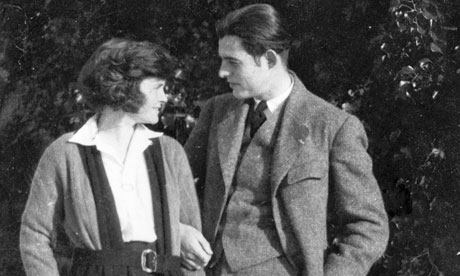
Earnest Hemingway, one of America’s greatest writers, married four times, but his first wife, Hadley, was whom he moved to Paris with. It was she who witnessed the beginning of his creativity, it was she who watched him casually chat to the newly published and unknown F. Scott Fitzgerald, it was she who cradled their child in her arms whilst he wrote, and it is she who lay in bed beside him, pretending to be asleep, whilst his mistress lay on top of him…
There’s always the shadow to someone’s fame, and Hadley was that of Hemingway. Whilst he rolled in his imagination, the jazz age, art and sexual promiscuouness, his shadow has to admit defeat, admit that she has lost her grip on the love of her life once and for all. This novel is painful to read, as a woman I felt like screaming at her passiveness, at her reluctance to stand up for herself. Whilst playing the role of the shadow she forgets she, too, is a human like her husband. I always enjoy reading biography styled fiction novels, and McLain owes a lot, obviously, to Hemingway’s own work A Moveable Feast when writing about his Paris years, but she adopts the voice of the wife ever so cleaverly. I had the pleasure of meeting Paula last year where I got to ask her a question. I asked “You say you got a lot of Hadley’s thoughts and feelings from reading the letters that she wrote. Now, in this novel she puts up with so much, she’s so passive, she doesn’t scream, she doesn’t yell, she lies there and takes it. Was that a personality which she indicated in her letters or was that an authoritative creation? Did she not hate herself for being so weak to her own human sense of pride? Because in the novel she never scolds herself for being so allowing of Hemmingway’s cruel ways.”
McLain, as elogant and charming as she was, was a little taken aback and just grinned in response “I actually never thought about that,” she replied “In her letters she never indicated self loathing or shame for how she handled the situations, but actually now that I think about it she didn’t really express much emotion behind her actions at all. I suppose you could say that is my own creation. I doubt we’ll really ever know how Hadley truly felt.”
So, if you’re looking for an utterly true and realistic read of Hadley’s true emotions, feelings and expressions, I’m afraid sadly that won’t be available.
However, I get the impression McLain brought together the most realistic possibility of who Hadley was. The novel itself is brilliantly well written, it was certainly my favourite novel of 2011, and meeting McLain personally strengthened my affections for it even further. Those who haven’t read anything of Hemingway, like myself at that time, needn’t worry of the chance of being ‘lost’ or ‘disconnected’, because you can’t be.
You are a reader witnessing all the greatest artsists of the twentieth century casually mingling together, unaware of who they will grow to be, unaware of their future effect on the world of art, unaware of how their casual dining together over a bar would sound as mythological and unrealistic as reading about Shakespeare having brunch with Charles Dickens. The notion of putting them together is absurd, incomprehensible. Yet the novel contains such a fantastical collection of brilliant novelists and artists all nonchalantly collecting together that you’re thrown into a state of disbelief that this was, in fact, reality. That’s such a fantastic notion. In fact it’s wonderful. You don’t realise how close artists were until you put them all into one location, one of the most wonderful places in the world, Paris. I’m unable to state how delightful this novel is; despite being biographically influenced it is not historically heavy, for you can easily forget whilst reading that it’s not a complete work of fiction. McLain is an author to keep an eye out for, I’m pretty certain this is just the starting point of a brilliant twenty-first century writer. ★★★★★
However, I get the impression McLain brought together the most realistic possibility of who Hadley was. The novel itself is brilliantly well written, it was certainly my favourite novel of 2011, and meeting McLain personally strengthened my affections for it even further. Those who haven’t read anything of Hemingway, like myself at that time, needn’t worry of the chance of being ‘lost’ or ‘disconnected’, because you can’t be.
You are a reader witnessing all the greatest artsists of the twentieth century casually mingling together, unaware of who they will grow to be, unaware of their future effect on the world of art, unaware of how their casual dining together over a bar would sound as mythological and unrealistic as reading about Shakespeare having brunch with Charles Dickens. The notion of putting them together is absurd, incomprehensible. Yet the novel contains such a fantastical collection of brilliant novelists and artists all nonchalantly collecting together that you’re thrown into a state of disbelief that this was, in fact, reality. That’s such a fantastic notion. In fact it’s wonderful. You don’t realise how close artists were until you put them all into one location, one of the most wonderful places in the world, Paris. I’m unable to state how delightful this novel is; despite being biographically influenced it is not historically heavy, for you can easily forget whilst reading that it’s not a complete work of fiction. McLain is an author to keep an eye out for, I’m pretty certain this is just the starting point of a brilliant twenty-first century writer. ★★★★★

No comments:
Post a Comment